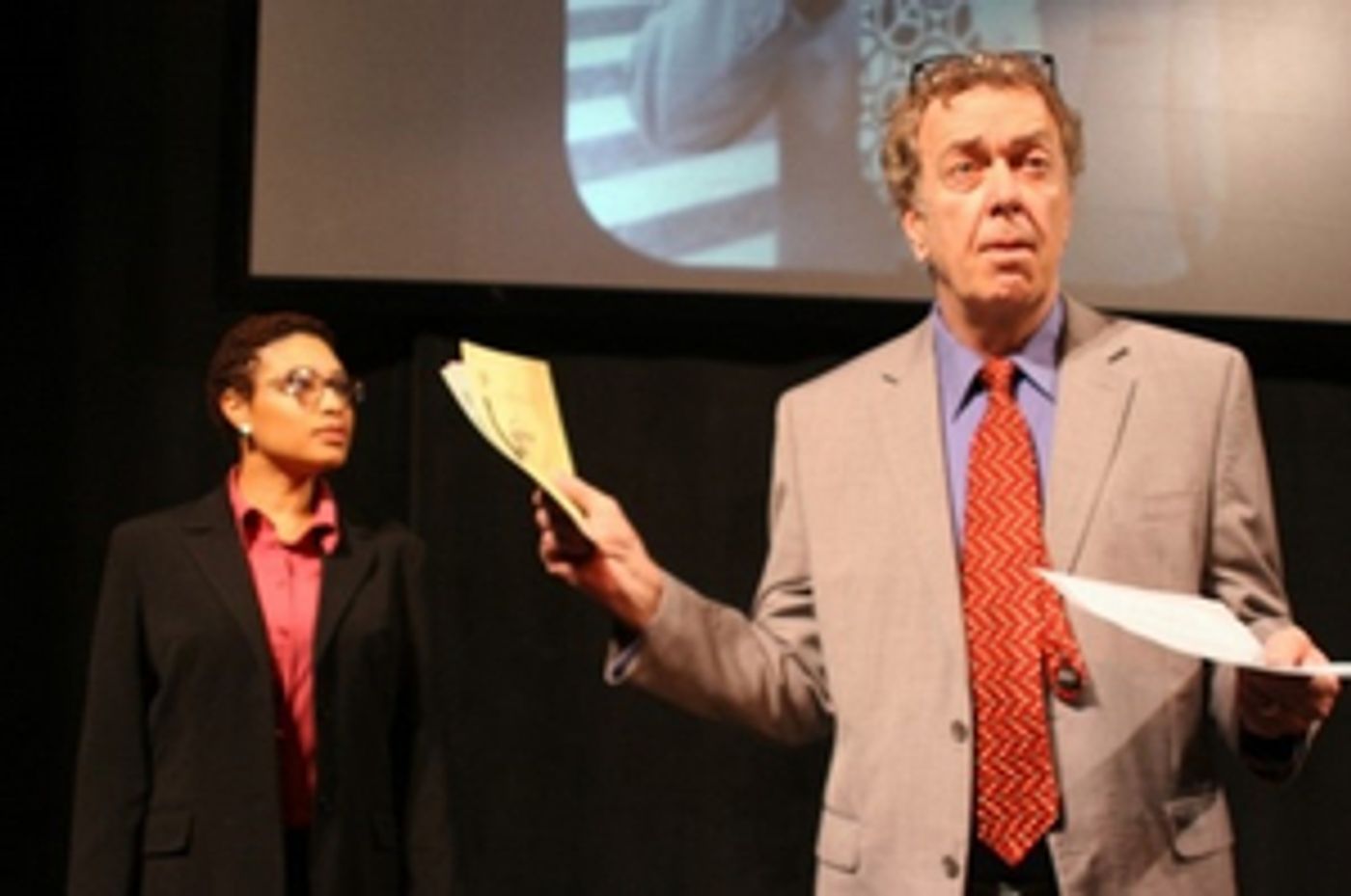Review: iTheatre Collaborative Presents KUNSTLER

Equal justice under the law. With liberty and justice for all. The first phrase is engraved on the front of the U.S. Supreme Court. The second, embodied in the Pledge of Allegiance. In practice and daily life, this foundational tenet of American jurisprudence may far too often be violated by the nefarious interests of the state.
No one knew better the gap between the promise of the system and its fulfillment than William Kunstler. Like another legendary champion of the damned, Clarence Darrow, Kunstler donned the armor of a defense lawyer and used the courts not solely to plead the cases of his clients but also to reveal the deficiencies and vagaries of the law ~ through what he called movement law, to put the law on trial.
Kunstler's portfolio reads like a history of one of the most turbulent times in American history when people took to the streets and the courts to protest a controversial war and to promote civil rights. His clients read like a listing of the architects and movers of social change ~ the Catonsville Nine, the Black Panther Party, the Weather Underground, the rioters at Attica Prison, and the American Indian Movement.
In KUNSTLER, Jeffrey Sweet's powerful homage to a seminal figure of the '60's and '70's, the mythic figure is revealed in his more human dimension, and the history of the times is dramatically chronicled.
The play is especially well-written (as is typically the case with Sweet's works) ~ at once, both intellectual and emotional ~and, in its current delivery, directed by Charles St. Clair at iTheatre Collaborative, exceptionally well-acted.
Duane Daniels commands the stage with a natural and compelling portrayal of Kunstler. Beyond his close-enough likeness to the character, he adopts a casual conversational manner that engages the audience in a unique tutorial on social justice and the law. He presents a man more self-conscious than presumptuous, more pragmatic than self-righteous, the consummate and effective idealist.
Assailed by protesters for his radicalism, Kunstler arrives at Columbia to deliver a talk on his journey as an attorney.
He is hardly the beneficiary of a warm greeting. Kerry Nicholas (a poised and reserved Kathleen Tate), the representative of the school's speakers program, gives him a polite but nonetheless cold shoulder ~ for reasons which will become clear later in the show.
Before regaling the student audience with his recollections of the big cases he fought, he aims to warm them up with a few "lawyer jokes" that predictably fall flat. He tells of the moment ~ infuriated and inspired by the incarceration of five Freedom Riders for the crime of eating at a whites-only lunch counter in Mississippi ~ that he left the comforts of a middle-class life to live the life of a lawyer. He describes one case after another, expanding one's appreciation of his zeal and courage and the risks he took (including confinement) to speak truth to power. Weaving in and out of his recollections are the trials of his personal life.
Kunstler was obviously no stranger to controversy, and it was in the later cases of his life that he stirred up acrimony from those who had held him in esteem, who felt that he had strayed from his principles. How to explain his defenses of mobsters like John Gotti and terrorists like Sheikh Omar Abdel-Rahman (head of the group responsible for the 1993 World Trade Center bombing) and El-Sayyid Nosair (the assassin of Jewish Defense League leader Meir Kahane!
In a telling confrontation with Kunstler, Kerry (in a performance adroitly delivered by Ms. Tate) challenges the attorney for what she believes is an incomprehensible departure from his principles. In particular, the disillusioned student questions how he could have defended Yusuf Saalam of the Central Park 5, convicted of assaulting and raping a young white woman. The two actors play off each other in a scene that is memorable for its pathos and for the intentions that it unveils.
In the end, history acquits Kunstler. However, Kunstler's (and our) dream of equal justice under the law has yet to be fully realized. iTheatre Collaborative has given us cause with Jeffrey Sweet's play to be reminded of this truth.
KUNSTLER runs through February 1st at the Herberger Theater Center's Kax Stage.
Photo credit to Christopher Haines ~ L to R: Kathleen Tate, Duane Daniels
iTheatre Collaborative ~ www.itheatreaz.org ~ Venue: Kax Stage at the Herberger Theater Center ~ 222 E. Monroe Street, Phoenix ~ Herberger Box Office ~ 602-252-8497
Reader Reviews

Videos

